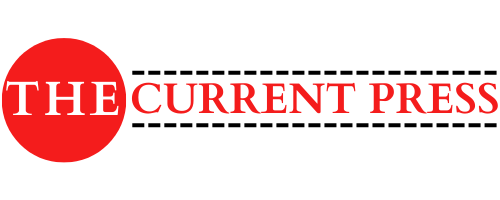Insurance is an essential aspect of financial planning and risk management. Whether it’s protecting your home, vehicle, health, or business, choosing the right insurance can provide peace of mind and financial security. However, with the myriad of insurance options available today, it can be overwhelming to determine which policies best suit your needs. In this article, we will guide you through the process of selecting the right insurance for your specific requirements.
Assessing Your Insurance Needs
Understanding Insurance Types
Before diving into the selection process, it’s crucial to grasp the various insurance types available. These may include health insurance, auto insurance, home insurance, life insurance, and more. Each type serves a different purpose, and understanding their coverage will help you make informed decisions.
Evaluating Your Assets and Liabilities
Assess your assets, including your home, vehicles, valuables, and investments. Additionally, consider your liabilities, such as outstanding debts and mortgages. This evaluation will help you determine the appropriate coverage amounts required to protect your assets adequately.
Identifying Potential Risks
Identify potential risks that may impact your life, property, or business. These risks could range from natural disasters to health emergencies to professional liabilities. Understanding the risks will enable you to choose insurance policies that mitigate these potential threats effectively.
Researching Insurance Providers
Reputation and Financial Stability
Choose insurance providers with a solid reputation and financial stability. Look for customer reviews and ratings to gauge their reliability and ability to fulfill claims. Opt for companies with a strong track record of providing excellent service.
Coverage Options and Policy Terms
Different insurance providers offer varying coverage options and policy terms. Study the fine print to understand what each policy includes and excludes. Make sure the policy terms align with your requirements and preferences.
Customer Service and Support
Excellent customer service is crucial when dealing with insurance. Choose a company known for its prompt and helpful support in case of claims or queries. A responsive customer support team can make the insurance process much smoother.
Comparing Insurance Quotes
Gathering Multiple Quotes
Obtain insurance quotes from several providers for the same coverage type. Comparing multiple quotes will give you a better understanding of the market rates and enable you to find competitive premiums.
Analyzing Coverage and Premiums
While comparing quotes, ensure that you evaluate the coverage provided by each policy, not just the premium amounts. Cheaper policies may have limited coverage, so strike a balance between affordability and adequate protection.
Considering Deductibles and Limits
Take note of deductibles and coverage limits in each policy. A higher deductible can lower your premiums, but it also means you’ll pay more out-of-pocket in case of a claim. Assess your financial capability to choose the right deductible amount.
Understanding Policy Exclusions
Knowing What’s Not Covered
Pay close attention to policy exclusions to understand what specific situations are not covered by the insurance. Some policies might have exclusions for certain natural disasters, pre-existing conditions, or high-risk activities.
Exploring Additional Coverage Options
If certain exclusions concern you, consider additional coverage options or riders that can be added to your policy. These may provide coverage for specific scenarios that are not included in the standard policy.
Utilizing Discounts and Bundling Policies
Identifying Potential Discounts
Insurance providers often offer various discounts based on factors like a clean driving record, home security systems, or bundling multiple policies. Identify the discounts available and take advantage of them to reduce your insurance costs.
Bundling Policies for Savings
Consider bundling multiple insurance policies with the same provider. Combining home and auto insurance, for example, may lead to significant savings on premiums.
Reviewing and Reassessing Your Insurance
Periodic Review of Coverage
Regularly review your insurance policies to ensure they still align with your needs. As life changes, so do your insurance requirements. Make adjustments as necessary to avoid gaps in coverage.
Adjusting Your Policy as Needed
If your circumstances change significantly, such as buying a new home or starting a business, update your insurance policy accordingly. Keeping your coverage up-to-date is essential for adequate protection.
The Importance of Professional Advice
Consulting with an Insurance Agent
If you find the insurance selection process overwhelming, consider seeking guidance from an experienced insurance agent. They can help you navigate through the options and find the best policies for your unique situation.
Seeking Guidance from Financial Advisors
Financial advisors can also offer valuable insights when it comes to choosing insurance as part of your overall financial planning. They can help you integrate insurance into your long-term financial goals.
Conclusion
Selecting the right insurance involves careful consideration of your needs, risks, and available options. By understanding your assets, liabilities, and potential risks, researching reputable providers, and comparing quotes, you can make well-informed decisions. Remember to review your policies periodically and seek professional advice when necessary. By taking these steps, you can secure the protection you need for a more financially secure future.
FAQs
Is it essential to have multiple insurance policies?
While not mandatory, having multiple insurance policies can provide comprehensive coverage for different aspects of your life, enhancing your overall protection.
How do I know if I need additional coverage beyond standard policies?
Assess your lifestyle, activities, and potential risks. If you identify specific areas of concern not covered by standard policies, consider adding riders or seeking policies that address those needs.
Can I switch insurance providers mid-policy?
Yes, you can switch providers if you find a better policy that suits your needs. However, it’s essential to review cancellation policies and potential penalties before making the switch.
Does the cheapest insurance policy offer sufficient coverage?
Not always. Cheaper policies may come with limitations in coverage or higher deductibles, which could leave you vulnerable in case of a significant claim.
How often should I review my insurance policies?
It’s advisable to review your insurance policies at least once a year or whenever a significant life event occurs, such as marriage, the birth of a child, or major purchases.

